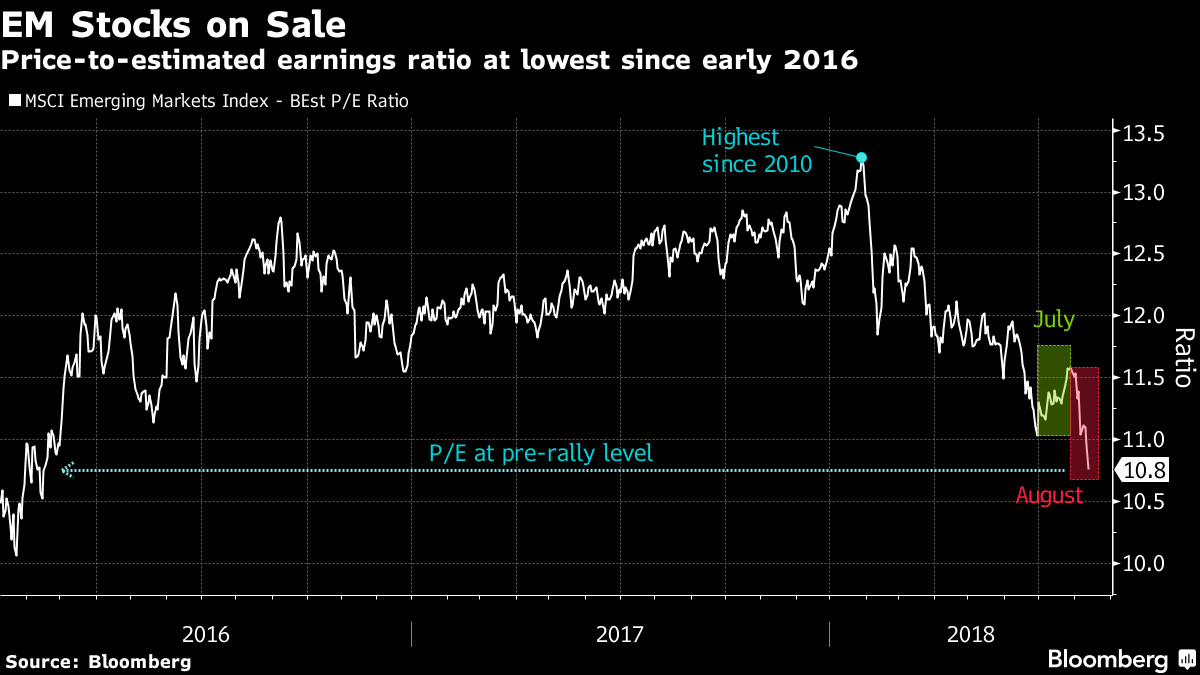
Turkey's market carnage rippled across emerging markets, sending both stocks and currencies toward their lowest levels in a year.
The lira led losses among global peers after the nation's first steps to bolster the financial system were seen by some analysts as insufficient to protect markets in times of distress. As President Recep Tayyip Erdogan lashed out at the U.S., took higher rates off the table and said he wouldn't accept an international bailout, traders pushed down Turkish assets in a selloff that spilled over to other developing economies.
The rand's one-month implied volatility soared by the most since December 2015, while the yield on Argentine's century bonds rose to 10 percent as the peso sank to 30 per dollar.
"It's another Manic Monday," said Jordan Rochester, a currency strategist at Nomura International in London. "We go through the list of options they have to stop this: it involves rate hikes, getting the IMF involved and restoring market confidence in the lira. Unfortunately, all the components are going the other way."
Fear that the Turkish meltdown will keep punishing emerging markets resurfaced Monday as traders also grappled with tensions between the U.S. and major economies such as Russia and China. Still, many analysts say there are few fundamental reasons to add the whole space to the same basket as several countries have done their homework. That means: while the stress in Turkey may continue, its correlation to the rest of the asset class may decline soon.
"EM has already seen a large selloff between April to July and negative developments in Turkey will eventually be seen (along with Argentina) as isolated given their exceptional external imbalances compared to most EM countries," JPMorgan analysts including Luis Oganes and Jonny Goulden wrote in note to clients.
Turkey's market turmoil didn't just erase a July rebound in emerging-market stocks — it also made them the cheapest since early 2016, before a two-year, 60 percent rally. At 10.8, the MSCI Emerging Markets Index's 12-month blended forward price-to-estimated earnings ratio is now also below where it was after a sell-off in the second quarter. The gauge itself fell 2 percent this month, extending its yearly decline to about 10 percent.
 While some analysts say they are happy to nibble at stocks, they aren't really diving in. Equities in developing markets will likely remain turbulent with little sign of stability to lure bargain hunters despite Monday's selloff, according to UBS Asset Management.
While some analysts say they are happy to nibble at stocks, they aren't really diving in. Equities in developing markets will likely remain turbulent with little sign of stability to lure bargain hunters despite Monday's selloff, according to UBS Asset Management.



